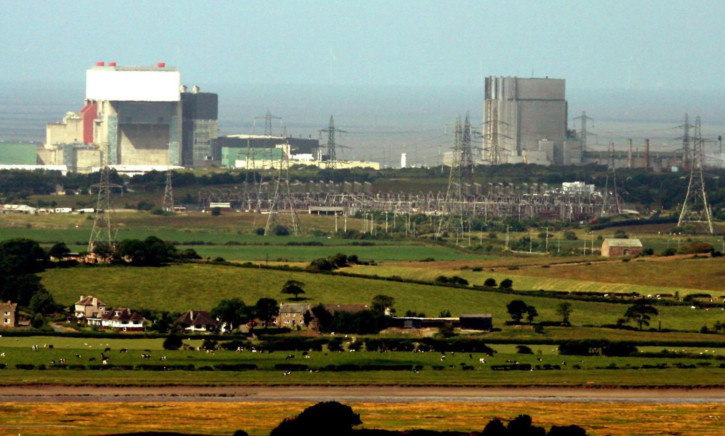
Power stations in the north of England may be kept open beyond their scheduled lifespan under new proposals.
EDF Energy, which owns eight nuclear power stations in Britain, wants to continue profiting while new nuclear plants are built. The company is expected to claim they can still run safely 45 years after opening.
Bosses believe extending their life will help to fill the “energy gap” being created by the closure of coal-fired power stations.
It is considering extending the lives of Heysham 1 and 2 in Lancashire and Hartlepool, County Durham, which are scheduled to close in 2019.
The planned move was welcomed by Hartlepool MP Iain Wright, Labour’s shadow minister for industry.
He said: “It provides a longer period of certainty for employees, as well as crucially helping the local industrial supply chain and playing a key role in Britain’s energy needs. The long-term objective should be to build a replacement power station in Hartlepool, but the extension of the station’s working life will safeguard much-needed highly-skilled and well-paid jobs.”
Andrew Sherry, director of the Dalton Nuclear Institute at Manchester University, said the plans could be operated at a lower temperature to prolong their life. This would mean a reduction in the amount of electricity generated.
But Mr Sherry said: “It makes economic sense, supports the energy security of the country and provides a low-carbon source of electricity.
“The value of the life extensions is around £7 billion to the UK economy. This is because we are now generating electricity from power stations which, in effect, we have already paid for.
“It’s like your car the longer you can keep it on the road, it’s a good thing, as long as it passes its MoT.”
The extensions will give more time for EDF to win approval for new nuclear plants in Britain. The first of these stations is only due to start generating in 2023.
To extend the life of the stations, EDF will need an ongoing “safety case” approved by the Office for Nuclear Regulation, an agency of the Health and Safety Executive.
Doug Parr, chief scientist at Greenpeace UK, said: “These nuclear power stations are pretty profitable for EDF. Its game plan now is to sweat these assets for as long, and as hard, as they can.
“The older the stations get, the more likely they are to have engineering and safety issues. We just have to trust that the regulator is going to be competent in its job.”
Last month, Vincent de Rivaz, chief executive of EDF Energy, told staff that “reportable events” at the company’s nuclear power stations had fallen by more than 75% since 2009.
He said: “Our life extension programme will ensure the existing nuclear plants continue to generate the low-carbon electricity the UK needs for as long as practical. People used to believe most of the existing nuclear power stations would close by 2023. “In fact, through the investment made in the life extension programme, most will operate beyond that date.”

Enjoy the convenience of having The Sunday Post delivered as a digital ePaper straight to your smartphone, tablet or computer.
Subscribe for only £5.49 a month and enjoy all the benefits of the printed paper as a digital replica.
Subscribe